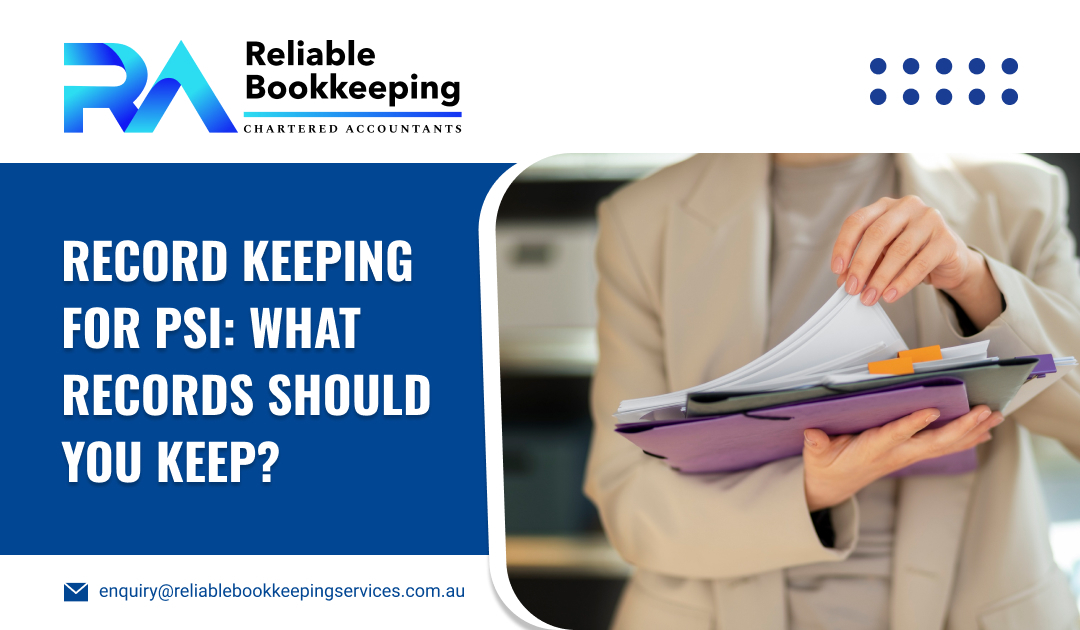You may wonder which income is considered PSI and which is not. Before we dive in, we’ll discuss the basics of personal service income (PSI).
What is Personal Service Income (PSI)?
Income is considered PSI when over 50% of the received income from a contract is a reward for your personal skills or efforts, rather than being produced by the sale of goods, the use of assets, or from a business structure. When checking out whether your income is PSI, you must pay attention to the income received from each contract separately. The terms and conditions of the contract, invoices and written agreements that have details about the work arrangement, are essential to check out if the income is PSI. These can help you know what portion of the income from each contract was for:
- your skills, labour, expertise, knowledge or efforts, and
- anything else, such as tools and equipment used or the material supplied.
If 50% or less of the received income from a contract was for your personal skills or efforts, then none of the income from that contract is considered PSI. You must keep records for PSI, and if you find it difficult to record everything, bookkeepers Melbourne can help.
Who can Receive Personal Service Income?
You can earn personal service income in any industry, profession or trade. Here are some common examples, but are not limited to:
- engineers
- information technology consultants
- financial professionals
- construction workers
- medical practitioners.
As Personal Service Income (PSI) is a reward for an individual’s personal skills or efforts, only individuals can receive PSI. Individuals can receive PSI either directly as a sole trader, or through another entity, such as a trust, partnership, or company. When you receive PSI indirectly through another entity, then that entity is considered a personal services entity.
What are Record-Keeping Requirements for PSI?
Record-keeping of your expenses and income is essential to learn about the cash flow in and out of your company. You must maintain records that explain all financial transactions that are related to your tax affairs, including personal services income (PSI). Generally, it’s crucial to maintain records of all financial transactions in English for at least 5 years. The 5-year time duration starts from when you obtained the records. When checking out if you earn PSI, you must maintain the records that show:
- whether the income is considered PSI
- how you check out if the PSI rules apply
- which expense applies to any received PSI, and
- the deductions you are liable to claim against the PSI.
If more than one individual is producing PSI, you must maintain records related to each individual. Here are the types of records you must maintain include:
- tax invoices
- contracts with schedules
- diaries explaining what work was done, when and for whom
- time sheets submitted to the client or labour hire firm
- emails showing contract negotiation
- bank statements and receipts
- vehicle log books.
How Do You Know if PSI Rules Apply to You?
If you have earned a PSI, you must determine if the PSI rules apply to you. To do this, you must check if you are a personal services business (PSB) in the year that you earned PSI. You are allowed to self-assess as a PSB if you:
- Satisfy the results test in concern with at least 75% of your PSI, or
- Satisfy one of the other PSB tests and less than 80% of your personal service income is from the same entity and its associates.
The other PSB tests are the Employment test, the Unrelated clients test, and the Business premises test. If you can’t self-assess as a PSB for a specific income year, you can apply for a PSB determination in some circumstances. If you are unsure about this, you should seek help from taxation accountants.
Conclusion
It’s crucial to understand whether PSI rules apply to you or not along with record-keeping requirements. If you are not familiar with the PSI rules and record-keeping obligations, ensure to get reliable bookkeeping services to ensure accurate record-keeping for PSI.
Other Useful link:

